Festivals - Death Cycle : Gabriel Carrer and Matthew Ninaber on Blending Giallo Style with Brutal Modern Slasher Horror
By Mulder, London, 23 august 2025
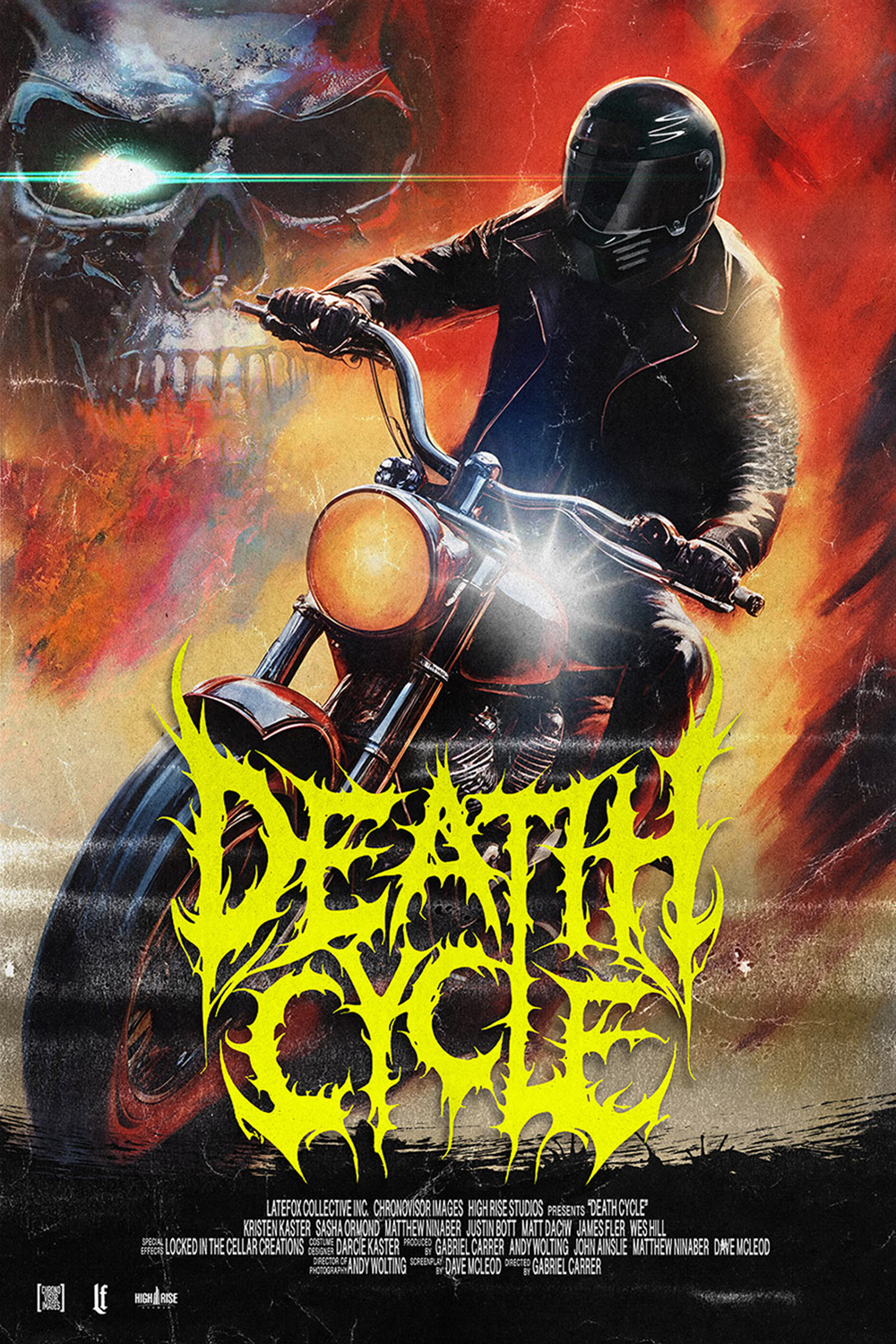
Premiering tomorrow night at FrightFest 2025 at 20:48, Death Cycle is the latest unsettling creation from director Gabriel Carrer and writer Dave McLeod, a giallo-infused slasher that combines raw brutality with psychological ambiguity. Produced by John Ainslie, Gabriel Carrer, Dave McLeod, Matthew Ninaber, and Andy Wolting, the film plunges audiences into a neon-lit nightmare where grief collides with violence, and a motorcycle-riding killer terrorizes the streets with relentless fury. Anchored by Kristen Kaster’s deeply emotional performance as Abby and Matthew Ninaber’s enigmatic turn as the mysterious stranger who upends her fragile world, the film questions not only who the real monster is, but also how unresolved trauma and fear can become their own cycles of horror. With its world premiere set to ignite one of the festival’s most talked-about screenings, Death Cycle positions itself as a bold and visceral addition to contemporary genre cinema.
Q : Hi Gabriel, Death Cycle mixes giallo style with modern slasher brutality. How did you find the right balance between paying homage to Italian horror and keeping the film fresh ?
Gabriel Carrer : Ah, that's a good question. I think keeping it fresh was just like what excites me, you know, when you're looking at the screen and what was exciting our cinematographer, Andy. Um, like what was exciting us. Like, we like our Giallo films. We're not Giallo fanatics or anything, like we're not hardcore Giallo fans. We know what Giallo is. We love Giallo cinema. Um, and it was kind of like, what would we like to see in a Giallo film? How would we translate that into something that we would want to see in a thriller? You know, this film isn't like a crazy slasher or anything like that. It more so falls into a thriller. So, it was trying to introduce some of the highlights of a Giallo film into what we were making and what was exciting to us. Like, you know, close-ups of the black leather, a little bit of the stereotypes that Giallos do fall into. Um, it's not satire in any way. It still plays itself seriously. So, that's what kind of kept it interesting. A lot more style, kind of like the rule of cool, right?
Q : Hi Matthew, your character is both an ally and a possible threat. How did you approach creating that ambiguity on screen ?
Matthew Ninaber : That's Gabe directing me the whole time. So, if it was bad, Gabe just told me to do it again. So, I don't know if that's a great answer.
Gabriel Carrer : Well, Matt’s also a filmmaker too, right? So, he'll question me on things like, "Hey, dude, am I…?" And I'm like, "Yeah, you're doing fine." You know, he'll get caught up in his own head and I'll let him kind of figure it out himself too. You know what I mean? Because if I'm throwing stuff at him, I know how Matt thinks. I think that's another thing to do as a director: how does your cast think about things? Not necessarily about acting, but about anything in general. And then if you figure out how they think as people, then you can kind of approach things a lot easier that way.
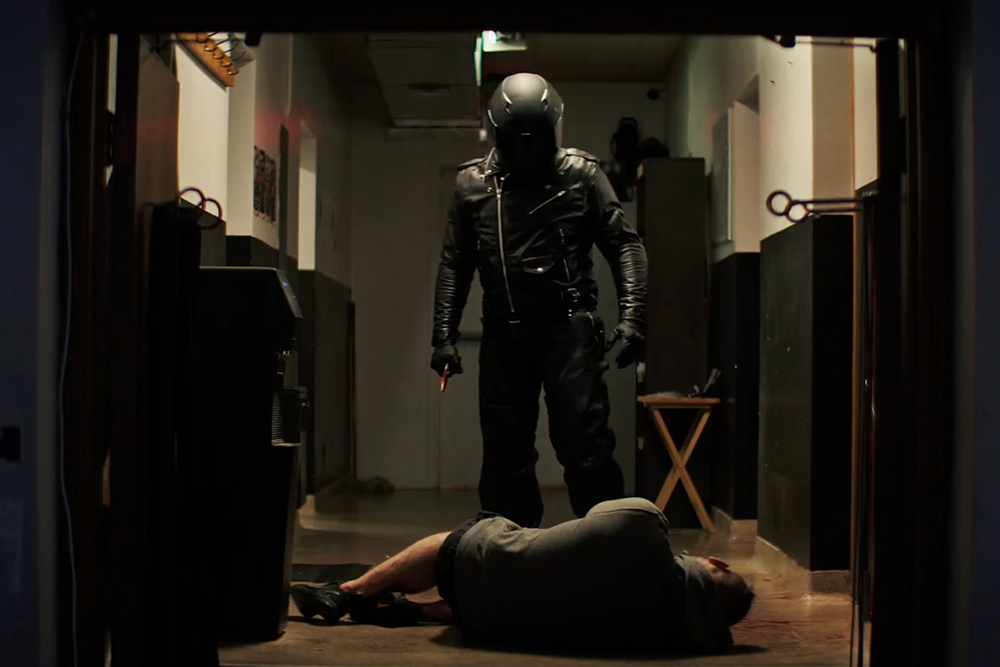
Q : Gabriel, you also edited the film yourself. Did wearing both hats as director and editor change the way you shaped the pacing and suspense ?
Gabriel Carrer : We shot pretty much what the script wanted, but then when we got into post, like in all editing, you start moving around scenes. And I noticed that the beginning of the movie, as it was in the script, wasn’t the strongest. And that's where something kind of happened in post where I won't spoil anything, but I did shuffle things around which affected the story completely narratively. Um, I kind of spilled the beans out at first and it worked. So things like that were kind of happy accidents. Um, when you're editing your film yourself, and you're not really on a timeline, you kind of just move things around and shuffle things around. And the film does kind of work on—well, I wouldn't say flashbacks, but it's a story that you can kind of move and shuffle around and it doesn't really interfere with the flow of the plot or create plot holes.
Q : Matthew, you’re also a producer on this project. Did having that dual responsibility influence the way you performed your role ?
Matthew Ninaber : Oh my gosh, yes. I had to keep Gabe in check all the time. We had a budget. We had things that we had to do. We had schedules. So, it was very interesting. Gabe would tell me as an actor things that had to be done, but then I could jump in as a producer and tell him how things would have to be done. No, it was fun. Like, we were a group of guys hanging out. It reminded me of why I wanted to do cinema. We really stripped it down and it was just a lot of fun filming this project and reminding ourselves, you know, what goes into a movie, what can you take out of the process to get closer to making something that we're passionate about and not getting caught up in all the producing, and more so just get consumed with creating. So, I don't know if I answered your question, but no, Gabe was the lead and I had a blast just directing and producing. Really, I just filled holes that needed to be filled.
Q : Gabriel, the opening of the film is so atmospheric, with a motorcycle in the night and neon-lit dread. How carefully did you craft that initial mood ?
Gabriel Carrer : That's a good Andy question. I feel like Andy should be here for that. A lot of smoke in that, right? Yeah, there is a lot of smoke. Um, I don't know.
Matthew Ninaber : Well, in the opening scenes, that was one of my jobs as a producer: to run around with a smoke machine, like a little flamethrower. Yeah, Andy did a great job. It was a lot of fun. And we didn’t have permission to close down that road, so we were getting in trouble with traffic, but we were quick and got it done.
Gabriel Carrer : Andy had little LED neon lights he strapped to the motorcycle and certain things to help light it. But it was very incognito. We had to do a lot of things under the radar and just kind of cross our fingers and hope that it did create that atmosphere and tension.
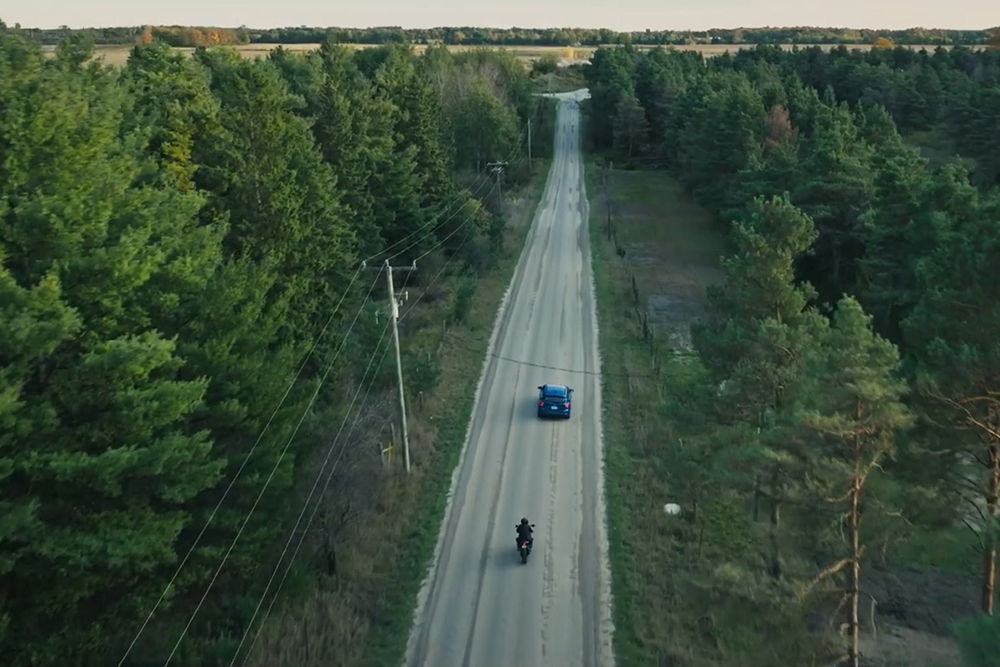
Q : Matthew, much of the story revolves around grief and mistrust. What, for you, does the real monster in the film represent ?
Matthew Ninaber : Oh, real monster? Jeez, paying taxes is the real monster for me. But, I think this was actually a really fun experience for me because before this, every monster that I've actually played was covered in prosthetics. So, this is the first time being out of the suit, being able to act, and it's a lot different because one thing in a monster suit is you have to overact. It's actually really hard going from creature effects because everything's so much bigger, and then actually having to tone it down on screen. So, that was one of the hardest things for me: just reminding myself not to overact because I didn’t have any prosthetics on.
Gabriel Carrer : It's always better though for an actor to overact, because what I’ve found is it's always easier to tone them down if they're acting big versus if they're really low and you’re trying to get them to go bigger. I find my personal challenge is figuring out a spot for them to go a little bit bigger. So, you know, it's like theater. Theater actors apparently are really good with film because you're able to bring them down, I think.
Matthew Ninaber : So I came off acting on Death Stalker, where I play four creatures, and they’re all very big and boisterous and just crazy. And then this is a very subdued, introspective character. So it was actually a lot of fun to get into that.
Q : Gabriel, many slashers lean on clichés, but Death Cycle feels psychologically ambiguous. Was breaking away from formula part of your creative intention ?
Gabriel Carrer : Uh, no. It's just like, I feel like I don't think about those things at all. It's almost like you're just acting in the moment and trying to think what's cool, like what do I like, what's cool, you know? And if it's clichéd, it's clichéd. If it's not, it's not. You know, and I know Andy and Matt would call me out on things a bit, about clichés and stuff like that.
Matthew Ninaber : Gabe is very much like a dog with a bone. If something gets his attention, he won't let go of it. But at the same time, he's not following trends. He's just following what excites him. And I think that's what makes what Gabe creates very interesting: you can't tell him otherwise. He's making a movie that he likes, a movie that he wants to watch.
Gabriel Carrer : And also like festivals—I feel like we made this movie more for a specific audience, you know what I mean? Like it is fun going on the festival scene with it. The festival audiences, I hope, like it. I'm part of the audience too. I'm just a regular person making a movie and thinking, what would I dig if I saw this at a festival? You know, with the logo, the font, the cool little music thing to it. So it's just kind of about ringing those bells, you know.
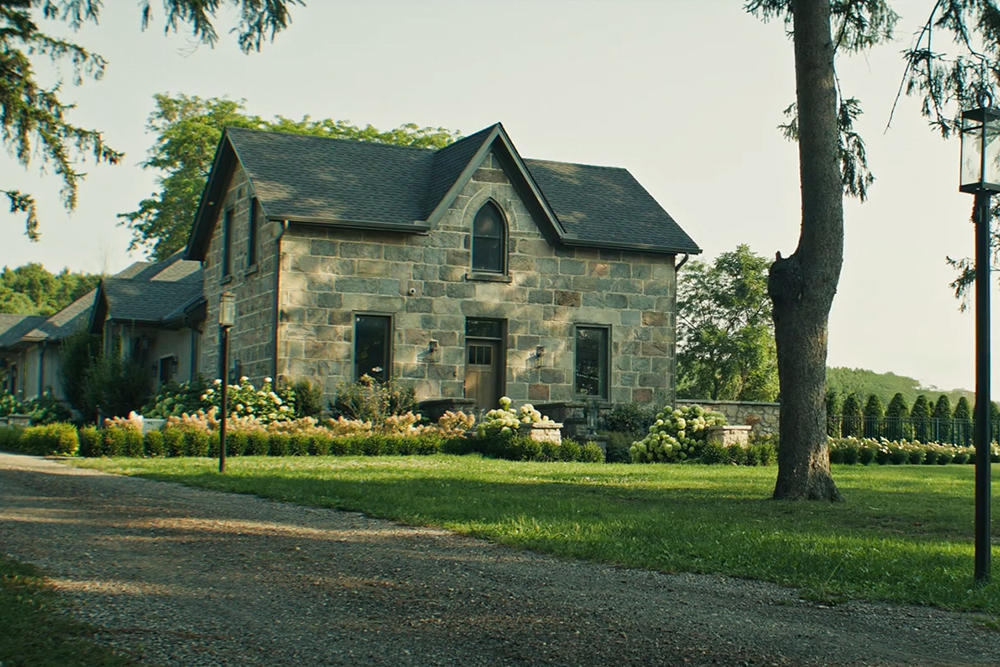
Q : Matthew, how was your collaboration with Kristen Kaster in building the fragile and tense dynamic that anchors the film ?
Matthew Ninaber : Yeah, working with Kristen Kaster. She's a fantastic actress. She's phenomenal. Working with her is great. She's a great actor because she really levels you up, and it was just awesome. I've only previously directed her in another film, so being able to act with her was a very different power dynamic because before I got to tell her what to do, and this time in these situations we were equals. So I’m like, okay. But she's great and she really embodies that character. And the thing I love about Kristen is she's one of the guys in the sense that she doesn't need a stunt person to do her work. She will get in there. She will do all the punching, kicking, or anything. She's a legit fighter and she goes to war in any film that she's in. And yeah, she was a great cast for this.
Q : Gabriel, the film runs a tight 80 minutes. Was that brevity a deliberate artistic choice, and how do you feel it serves the story ?
Gabriel Carrer : You know, it was a short script. Um, we had moments. So, like the script originally didn't have the kill scenes written in. When you read the script it was like: slasher killer shows up, kills the person, and it cuts back to the dialogue scene.
Matthew Ninaber : It was really interesting because I kept on fighting with Gabe. I'm like, what are the kills? What are the kills? And he’d say, oh, we're going to figure that out.
Gabriel Carrer : That's the thing, because we were working on a very tight budget. I had to talk to the effects people—Locked in the Cellar, who did amazing. I said to the special effects people: what could you do with this stuff?
Matthew Ninaber : And they dreamt together. Okay, there you go. Instead of coming to them and saying, “Hey, this is what I want,” it was: “What could you do and what can we do in this budget with these characters?” So, it was almost a backwards approach.
Gabriel Carrer : But timing-wise though, we had to stretch it out. So like Katarina—oh, I don't want to spill anything—but in one of the scenes in the film someone dies, and we knew kind of while we were filming… I feel like it’s how Kristen… we knew the duration. So we knew while we were filming what we had to do on set. Like, how can we draw this out? Like, were we going Halloween? Are we going Michael Myers? Are we doing the stalking pride to the house? You know what I mean? Just things like that. So we knew when we were filming these scenes we had to kind of—actually, it was kind of like a mystery, to be honest, because they weren't written in the script. So we didn't have a beat or a time. It was a risk. We did fall a little short. I feel like it could have been a little longer, the film. But we also did cut a lot of dialogue out. The most challenging part, timing-wise, was filming the kill scenes because we didn’t know how long to stretch them out for essentially.
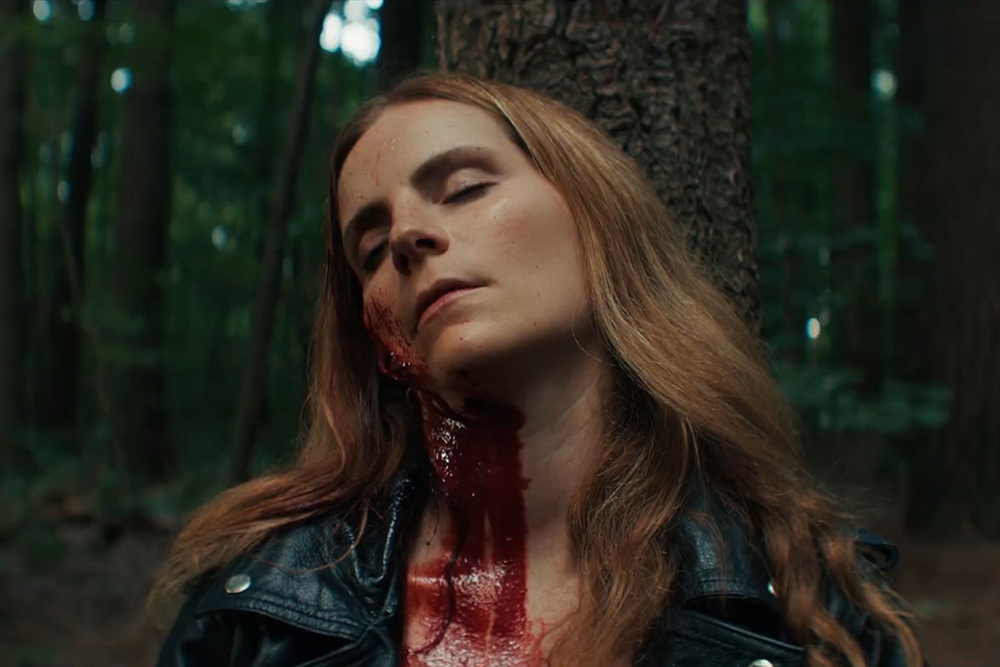
Q : Matthew, compared to your past genre roles, this one seems more internal and psychological. Was that a new challenge for you as an actor ?
Matthew Ninaber : Um, I kind of talked about this before. One of the things is I didn't know what Giallo was before we started this film. So when Gabe said we're doing a Giallo film, I actually asked him to repeat the conversation like five times. I thought it was Jello. I'm like, what are you talking about? And so I ended up at his house and we did a Giallo marathon where I watched movie after movie, and Gabe kept jumping up and explaining what this means and what that is, just educating me on the whole thing. So that was intense. I went to film school 101 in Gabe's house. But again, going from monster work—creature work—to not being able to hide behind a mask is always… that was a big, big thing for me because I spent so many years getting bigger with my emotions. And yeah, we've already talked about this, but that was the biggest thing.
Q : Gabriel, the trailer has been described as gasoline-soaked horror. How do you interpret that phrase, and does it capture what you aimed for ?
Gabriel Carrer : Yeah. Like there are one or two kill scenes in the movie that I could say are gasoline-soaked horror. But I'd say the word gasoline, for the film itself, is almost just a metaphor for the guys that went and made this movie. You know, we were all parts of it. Literally, a motorcycle is a very simple machine: it’s an engine, gas, brakes, and a throttle. It's not that crazy. And a few of us all have our motorcycle licenses, so we kind of were the motorcycle making this film. So that phrase has a little deeper meaning too, I think, for what we set out to do. You know, we were the horror on the gas, we were the gasoline driving this movie forward. So I think it follows that. But literally speaking, I think there are two scenes. It's not like a crazy over-the-top film. That's the thing. It's not some wild, over-the-top film. And that's why it's very important we reference Giallo, because as soon as we throw that word in, people will know what they're getting into.
Q : For all, FrightFest audiences are known for their energy and passion. How do you feel bringing Death Cycle to this specific festival crowd ?
Gabriel Carrer : Exciting and nervous, because this guy’s film here—his world premiere—was awesome. And the audience, I mean, that's a great example. At his world premiere the audience went nuts over it at FrightFest, like absolutely ballistic. Yeah, we were in the audience for his film. It was crazy hearing the audience react to it. Um, what's the title again?
Chris Marrs Piliero : Appofeniacs.
Gabriel Carrer : Really good movie. Um, but yeah, the audience reacted so well to it. So, you know, I don't think we're going to get that crazy of a reaction. I’ll be in the audience. Yeah. Oh man. Oh boy. But yeah, it's a really good crowd. So it was awesome to hear, sitting at other films, the audience love them at FrightFest. You're like, man, this audience is so cool. The festival is definitely a really cool festival. Yeah, it's a great crowd, great audience.
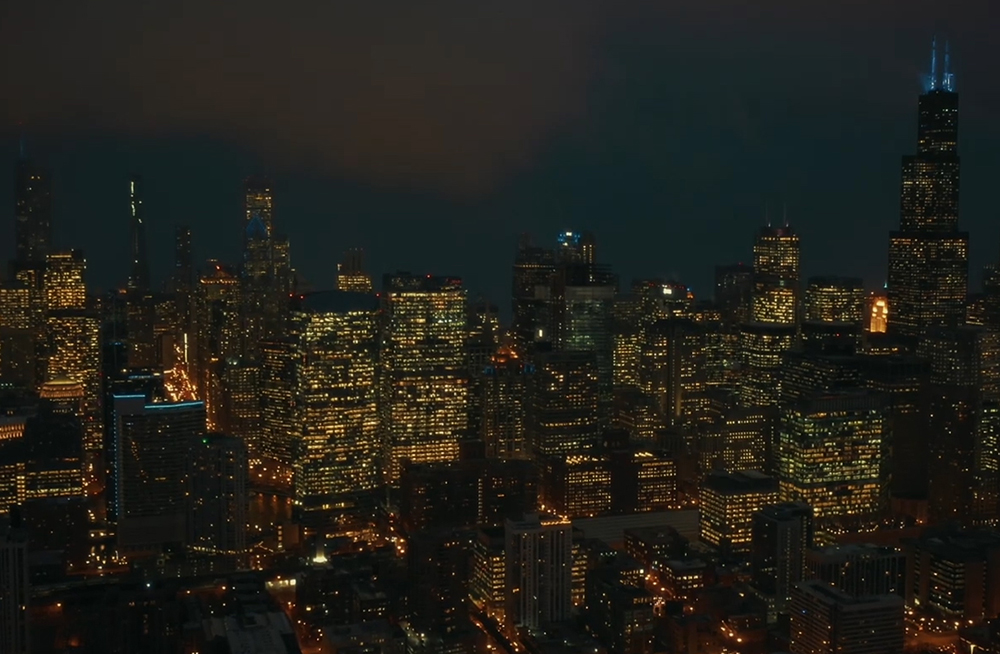
Q : Gabriel, working with Dave McLeod on the script and the wider producing team, what did that collaboration bring to the final film ?
Gabriel Carrer : Dave and I have been working on stuff for years, and we've had projects tied up with studios for like two years. That guy’s written so many scripts. Finally he’s like, “Dave, this is what we have. We have motorcycles, we have motorcycles coming out of our wazoo. We have access to this, we have this, we have this. Let’s create a film that excites us, that we can go shoot in our city, and just do ourselves. Keep it low-fi and just get something out there to keep that filmmaking bug going.” Right. So that’s what led to Death Cycle. It’s a great collaboration with Dave. He’s very easy to work with. While we were shooting, we had to change some stuff in the script, so he was always on hand. We’d send him an email or a comment like, “Dave, we’ve got to change this because we filmed it this way.” Not that he’d get upset—he’s super cool about it. He was great to work with for little mini rewrites here and there. He’s very adaptable. And he didn’t just write it. He also helped produce it. Some of the locations in the film, Dave pitched in as well.
Q : When you think of audience reactions at FrightFest, what kind of moment or scene are you most curious to see them respond to ?
Matthew Ninaber : The scene that I'm most excited about is at the end. Don't spoil it. Don't spoil it.
Gabriel Carrer : Oh yeah, don’t spoil it. Yeah. There are a few scenes… this is the thing: I feel like sometimes audiences expect huge twists, but our film doesn’t have huge twists. It’s very much like, this is the story, this is what happened, told from one or two perspectives of how it happened. Now, there are some kill scenes I’m really excited to see how they react to, because I know what we had to use to film them. I’m just curious to see how that’s going to play off, even for future reference, for future films. And even the sound too, some of the sound design—I’m curious to see how that’s going to play off in the theater. Because we haven’t had a theater screening of this yet, only on our 20-year-old computer speakers.
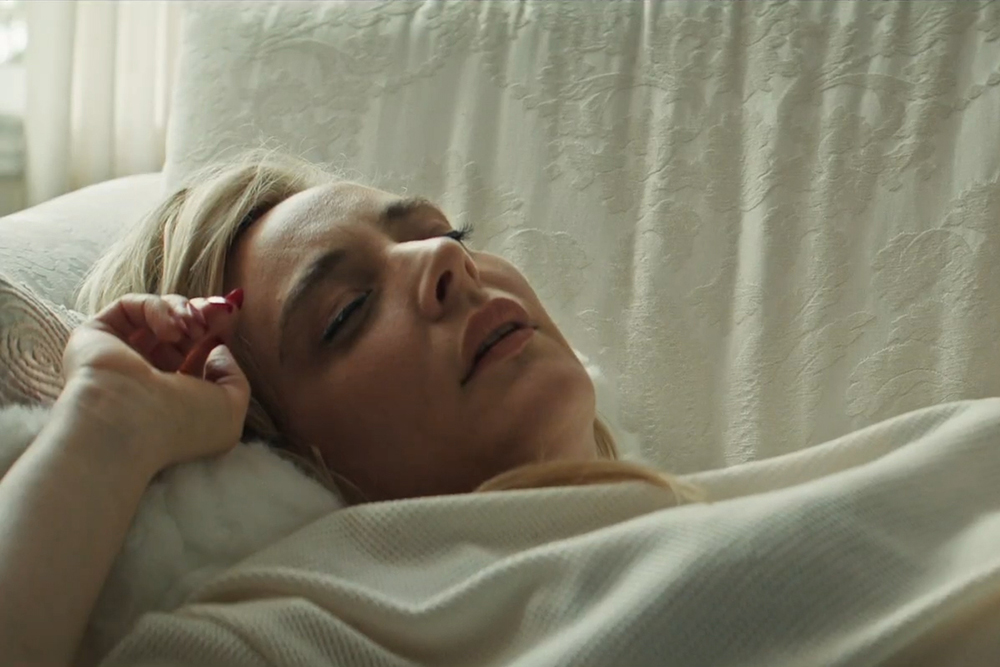
Q : Gabriel, do you see Death Cycle as a contained story, or could its themes—or even its killer—expand into something larger ?
Matthew Ninaber : Gabe always talks about how there’s this…
Gabriel Carrer : I want to make Death Cycle 2. Yeah. Honestly, I love this movie because we held back from a lot of stuff that I feel like we could have gone crazy with, but budget-wise we couldn’t. Like, I wanted a motorcycle doing a wheelie, going into someone’s chest in reverse, spinning the wheel into someone’s chest, tearing through the cavity, with blood flying down. But we didn’t have the budget for that, right? We didn’t have a bike we could strip down to do that with. So, in the sequel I want to throw in a twist and just have fun with it. I think the sequel—if there ever is one, I don’t think there will be, but there will be. Great answer.
Gabriel Carrer has established himself as one of Canada’s most distinctive voices in independent genre cinema, known for his ability to blend raw intensity with striking visual style. With films such as In the House of Flies and the acclaimed For the Sake of Vicious, he has built a reputation for crafting stories that balance visceral brutality with psychological tension, often pushing beyond conventional horror formulas. In Death Cycle, he not only directs but also edits, bringing his hands-on approach to every frame and reinforcing his signature mix of giallo-inspired aesthetics and uncompromising violence. His work reflects a deep respect for horror traditions while always seeking new ways to challenge and unsettle audiences, making him a filmmaker to watch within the international festival circuit.
Matthew Ninaber is a Canadian talent who has steadily built an impressive career both in front of and behind the camera, navigating acting, directing, and producing with equal commitment. Best known internationally for his physical performance as the armored alien in Psycho Goreman and for his directorial work on Death Valley, he brings a unique presence to every project, combining intensity with a willingness to explore complex, often morally ambiguous characters. In Death Cycle, he steps into the role of a mysterious stranger whose connection to a motorcycle-riding killer blurs the line between savior and threat, while also serving as one of the film’s producers, highlighting his multi-faceted involvement in its creation. His ability to balance raw screen presence with a deep understanding of the mechanics of genre storytelling makes him a compelling figure in today’s horror landscape.
Synopsis :
After the death of her sister, still distraught Abby is visited by a man looking to solve a series of murders by a motorcycle maniac. As their shared fear escalates, the killer’s rampage continues, leaving them both questioning who the real monster is in a revved up slasher that’s a deadly dish of payback chills and blood-soaked thrills.
Death Cycle
Directed by Gabriel Carrer
Written by Dave McLeod
Produced by John Ainslie, Gabriel Carrer, Dave McLeod, Matthew Ninaber, Andy Wolting
Starring Kristen Kaster, Matthew Ninaber, Sasha Ormond, James Fler
Cinematography : Andy Wolting
Edited by Gabriel Carrer
Production companies : Chronovisor Images, High Rise Studio, Latefox Pictures
Release dates :
Running time : 80 minutes

